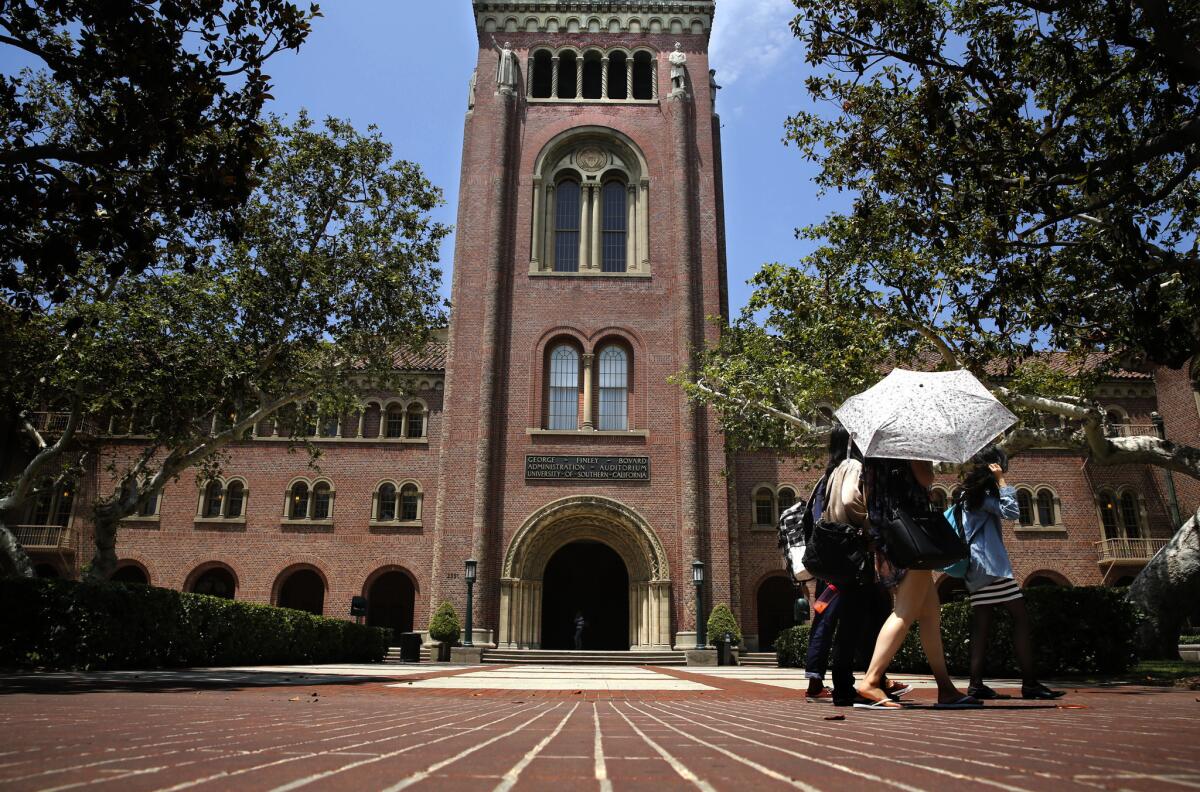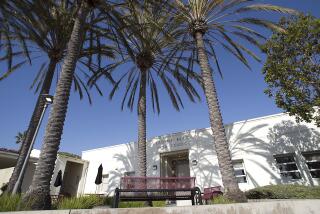USC’s #SelfieClass explores what photos of yourself say about self-image

USC is offering a class called #SelfieClass: Writing 150: Writing and Critical Reasoning: Identity and Diversity.
- Share via
The Selfie: Arguably most everyone with a smartphone has snapped a photo of themselves and posted it online.
But what really is behind a selfie? Is there a greater cosmic meaning in what many see as a sort of narcissistic act?
An associate professor at USC is attempting to go a little Carl Sagan with the social media phenomenon – which inspired Kim Kardashian to release a book of her own selfies.
In his #SelfieClass: Writing 150: Writing and Critical Reasoning: Identity and Diversity, Mark Marino is looking to engage his first-year writing students into thinking more intensely about themselves and the world around them.
“Selfies provide a fun and deceptively trivial opportunity to consider how we represent ourselves, how we are read, and how those images circulate to form online communities,” he said.
One of the students’ first writing assignments poses the question: How do your selfies produce or obscure a sense of your identity? He then asks the students to choose five selfies of themselves and examine race-ethnicity, socioeconomic status, sexuality and gender.
“Go anywhere in LA, and you’ll see rows of people tilting their heads and smiling into their phones,” Marino said. “They are communicating with their friends. But it’s not that simple.”
The selfie, he said, carries much more significance.
To Marino, selfie takers are “constructing an image of their identity -- their gender, their ethnicity, their sexuality, their socioeconomic status.”
“Except that’s only half of the process because these photos then will be read, liked and favorited, and interpreted by others -- based on their own expectations and experience,” he said. “Here we have the co-creation of identity wrapped up in a discrete act of networked communication.”
His students must maintain selfie journals and write blog posts, among other assignments. The class also teamed up with Miriam Posner, who teaches “Selfies, Snapchat, and Cyberbullies” at UCLA.
The class isn’t entirely self-involved.
Students volunteered and helped first-generation college applicants with their scholarship applications.
“Through the service project -- through interacting with area students of much different backgrounds than their own -- they came to see how important it is to broaden their networks beyond their dorms -- and how circulating yourself beyond your ‘friends’ and ‘followers’ will teach you far more about your community, city, and world,” Marino said. “Call it selfie awareness.”
For breaking news in California, follow @VeronicaRochaLA
More to Read
Sign up for Essential California
The most important California stories and recommendations in your inbox every morning.
You may occasionally receive promotional content from the Los Angeles Times.













